+86-18927501869
- All
- Product Name
- Product Keyword
- Product Model
- Product Summary
- Product Description
- Multi Field Search
 English
EnglishViews: 1615 Author: Joe Publish Time: 2025-01-25 Origin: Site

Wet Toilet Paper that Can Be Fushed Directly Into the Toilet.
In today’s world, where sustainability is no longer a trend but a necessity, the adult flushable wipes market is experiencing significant transformation. While consumer demand for convenience in personal care is at an all-time high, there is also a growing desire for products that are both effective and eco-friendly. Flushable biodegradable wipes have evolved from luxury items to essential, environmentally-conscious alternatives. With global industry leaders such as Sywipe wet wipes factory from China at the forefront, the demand for these products is steadily increasing. However, this burgeoning market faces several challenges—from environmental concerns to microbial risks. This article will explore the rise of flushable biodegradable wipes, the obstacles faced by suppliers, and the future of this innovative product category.
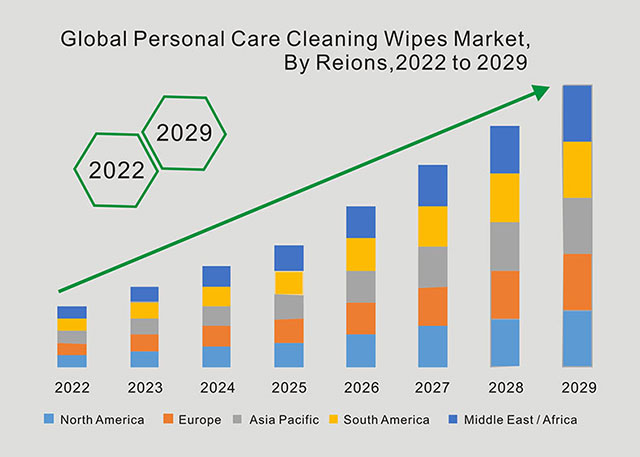
Source: Date Bridge Market Research Analysis 2022
The wet wipes market, particularly in personal care, is undergoing rapid growth. According to a 2018 report by Allied Market Research, the global market for personal care wipes is projected to grow at a compound annual growth rate (CAGR) of 5.2%, reaching a market value of $29.99 billion by 2030. This growth is attributed to increasing demand across various segments, including baby care wipes, feminine hygiene wipes, and industrial cleaning wipes. However, amidst this growth, a new segment—biodegradable and flushable wipes—is gaining traction due to heightened environmental awareness.
Sywipe, as one of the world's leading manufacturers of flushable and biodegradable wipes, plays a pivotal role in this market, particularly in China. With state-of-the-art production facilities and a commitment to sustainable practices, Sywipe's products are meeting the growing demand for eco-friendly solutions.
Despite the promising growth of the flushable adult wipes market, several critical challenges remain.
One of the most significant issues faced by the wet wipes market is environmental pollution, particularly from non-biodegradable wipes. While many wipes are made from natural fibers, they often contain synthetic plastic resins that are not biodegradable. This leads to severe environmental consequences. When consumers dispose of these wipes by flushing them down the toilet, they often clog sewer systems, causing blockages and fatbergs in wastewater treatment facilities.
This issue is not new. In 2018, the British government proposed a ban on disposable wet wipes due to their environmental impact, though a survey by Lane Group revealed that 59% of British consumers opposed such a ban, highlighting the tension between environmental concerns and consumer convenience.
Microbial contamination during the production and usage of wet wipes presents another challenge. As Angela Davies, CEO of MSL, notes, "If the substrate type is incompatible with the preservative system, microbial contamination may occur." This is a serious concern in personal care products that come in direct contact with skin. Additionally, improper handling during packaging—such as consumers using multiple wipes from the same container—can introduce contamination.
Comparison of Degradation Between Regular Wet Wipes and Flushable Wet Wipes
As environmental concerns continue to grow, innovation is key to ensuring that adult flushable wipes meet both consumer demands and sustainability goals.
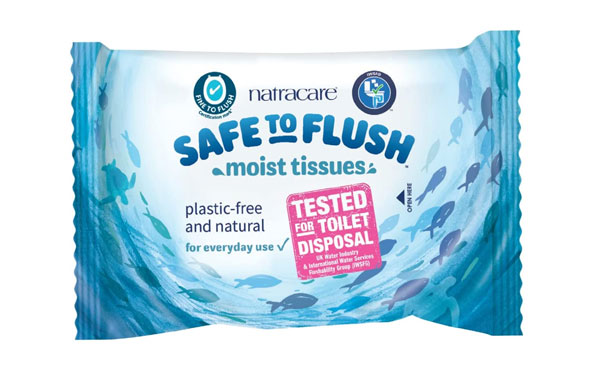
As disposable flushable wipes come under increasing scrutiny, manufacturers are pivoting toward more eco-friendly solutions. Sywipe and other leading companies are developing biodegradable wipes made from natural fibers such as bamboo and organic cotton. These wipes break down more quickly in the environment, making them safer for both plumbing systems and wildlife.
In response to environmental challenges, many wipes brands, including Natracare and Bodywise (UK), are promoting products made with 100% organic cotton or plant-based fibers that are biodegradable, free from synthetic chemicals, and compostable. This is a direct response to the rising demand for more sustainable personal hygiene products.

To address the immediate concern of plumbing issues, manufacturers are creating flushable wipes that break down quickly in water. For example, Kimberly-Clark has developed flushable wipes under the Cottonelle brand, which are designed to disintegrate within minutes after flushing, preventing blockages. These wipes are free from plastic fibers, reducing their environmental footprint.
Additionally, Natracare has introduced its plastic-free, 100% paper-based wipes, which meet the new UK Water Industry Regulation (WIS 4-02-06) for safe toilet disposal. This innovation is a significant step forward in ensuring that adult flushable wipes are not only safe for plumbing systems but also for the environment.
As consumers become more discerning, the wipes industry is witnessing a shift toward products that offer both convenience and sustainability. Fragrance-free formulations, cleaner ingredients, and on-the-go packaging are increasingly in demand, particularly in the personal care sector. Wipes designed for specific uses, such as makeup removal, feminine hygiene, and baby care, are becoming more targeted in their formulations to meet consumer needs without compromising on eco-friendly practices.
Flushable moist toilet paper is quickly becoming an alternative to traditional dry toilet paper, offering a more thorough and refreshing cleaning experience. Made from biodegradable fibers, these products are designed to break down in water without clogging pipes. However, not all moist toilet papers are created equal, and consumers must follow manufacturer guidelines for disposal to avoid plumbing issues.
Despite some concerns, flushable moist toilet paper offers several benefits, including improved hygiene and reduced irritation for sensitive skin. Additionally, it can help reduce the environmental impact by potentially using fewer sheets of dry toilet paper, which often contributes to deforestation.

Moist Toilet Paper
The material of a flushable adult wipe plays a significant role in its biodegradability and flushability. Many wipes are made from synthetic materials, which can take years to break down. Ideally, you should opt for wipes made from biodegradable materials like plant-based fibers, bamboo, or organic cotton. These options are better for the environment and ensure that the wipe breaks down more quickly in your plumbing system.
• Biodegradable Materials: Bamboo, organic cotton, and other plant-based fibers are excellent choices for flushable wipes. These materials are naturally biodegradable and break down much faster than synthetic fibers.
• Non-Toxic and Hypoallergenic Ingredients: Choose wipes that are free from alcohol, chlorine, and synthetic fragrances. These ingredients can irritate sensitive skin and are harmful to the environment.
While many wipes claim to be "flushable," not all meet the necessary standards for breaking down in water. This can lead to clogged pipes, which can be costly to repair and contribute to plumbing issues.
• Dispersibility Test: Choose wipes that have been tested for dispersibility. Reputable brands often conduct tests to ensure their wipes break down quickly in water, reducing the risk of clogs.
• Septic-Safe: If you are on a septic system, make sure the wipes are septic-safe. These products are designed to break down faster and are less likely to interfere with your septic tank's functioning.
• Additional Considerations: Skin Sensitivity, Fragrance, and Packaging
Flushable wipes are often used on sensitive skin, so it's essential to select a product that is gentle and non-irritating. Wipes with harsh chemicals or strong fragrances can lead to rashes, irritation, or allergic reactions.
• Hypoallergenic Ingredients: For sensitive skin, choose wipes that are labeled as hypoallergenic and dermatologically tested.
• Alcohol-Free: Alcohol can dry out the skin and irritate it. Opt for wipes that are alcohol-free and infused with soothing ingredients like aloe vera, chamomile, or vitamin E.
• Gentle on Sensitive Areas: If you are using wipes for personal hygiene, especially in delicate areas, ensure that the product is gentle and free from harmful chemicals.
Fragrance is another aspect to consider when choosing flushable wipes. While some people prefer wipes with a fresh scent, others might find them irritating.
• Natural Fragrances: Choose wipes that use natural essential oils for fragrance. Synthetic fragrances can often cause allergic reactions or skin irritation.
• Fragrance-Free Options: If you have sensitive skin, opting for fragrance-free wipes is better. These are less likely to irritate.
Convenient packaging ensures your wipes remain moist and ready to use, especially when traveling or in the house.
• Resealable Packs: Ensure the packaging is resealable so the wipes stay moist after opening.
• Travel-Friendly: If you're looking for wipes for on-the-go use, consider smaller, compact packaging that fits easily into bags or purses.

Biodegradable and Compostable
The biodegradable wipes are designed to break down naturally in the environment without harming wildlife. They are made from natural fibers such as bamboo, cotton, or other plant-based materials that decompose much faster than synthetic options. As non-biodegradable wipes continue to pollute oceans and rivers, biodegradable alternatives offer a much-needed solution to reduce environmental damage.
One of the major benefits of biodegradable wipes is their gentleness on the skin. Since they often contain fewer harsh chemicals, they are ideal for those with sensitive skin or for babies.
Compostable moist toilet paper is an innovative solution that combines hygiene with environmental consciousness. Unlike traditional wet toilet paper, which may contain synthetic fibers, compostable versions are made from natural, biodegradable materials. This product not only breaks down in water but can also be composted, reducing landfill waste. However, as with biodegradable wipes, it's important to ensure that these products are properly labeled and certified as compostable.
The key to creating truly biodegradable and adult flushable wipes lies in using plastic-free fibers. Synthetic fibers such as PET and PP do not break down in the environment and can contribute to long-term pollution. Therefore, wipes made from natural fibers like bamboo, cotton, or other plant-based materials are essential for minimizing environmental harm.
Despite the growing popularity of plastic-free wipes, consumers need to conduct research and verify whether wipes labeled as "biodegradable" or "flushable" truly meet these standards.
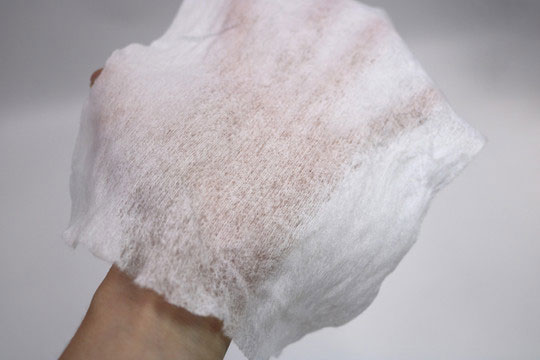
Wood Pulp Can Be Flushed Into Fibers
While biodegradable materials have clear advantages, such as environmental safety and performance in various applications, there are still challenges associated with their production. The higher cost of producing biodegradable wipes compared to traditional materials is one of the main obstacles to widespread adoption. Additionally, the production process requires more resources, making it a less cost-effective option for some companies.
Despite these challenges, the long-term environmental benefits far outweigh the disadvantages, making biodegradable materials the future of the wet wipes industry.
As the name suggests, "cotton" wipes are made of 100% natural cotton, which has the natural softness of cotton and does not irritate the skin; non-cotton wipes are generally made of other materials other than cotton. , such as viscose fiber, generally extracted from leaves, straw, and other cellulose-containing plants; polyester fiber is the extract of petroleum or natural gas, and some are a mixture of several chemical fibers.
"Cotton" wet wipes are made of cotton spunlace non-woven fabric. Spunlace is a physical process, that is, cotton is directly made into cloth through high-pressure spunlace. Because there are no additional ingredients added, the allergenicity is low, and it can reach 0 sensitization , very friendly to sensitive skin and infants.
Cotton flushable wipes are not as complicated as chemical fiber processing because of their natural materials. The production process consumes fewer resources. Discarded cotton wipes can also be naturally degraded and turned into organic fertilizers. The entire growth, processing, and post-processing process is environmentally friendly. Yes, there is no psychological burden to use. Chemical fiber is difficult to degrade, which brings a great burden to the land and marine environment.
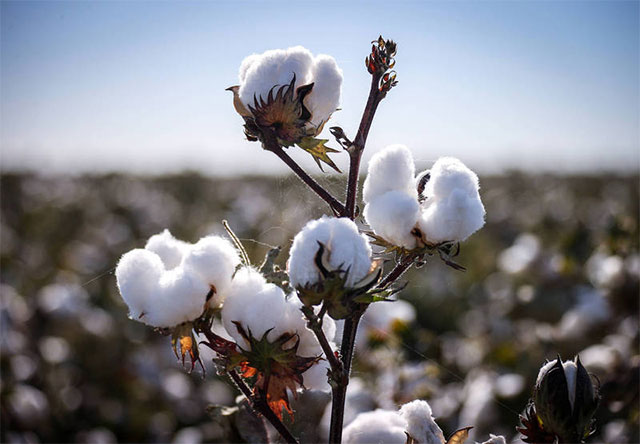
Cotton Fiber
100% pure cotton material is easy to identify through a combustion test. In order to ensure the biodegradability of wet wipes, the material must be 100% pure cotton. The fibers of pure cotton are full of toughness, not easy to tear, and there will be no flocs or dust during the tearing process; artificial cotton has short fibers. It will break when it is torn, and it is easy to produce a tiny powder. When pure cotton burns, the flame turns yellow and does not produce black smoke, but it has the unique smell of burnt cloth. Artificial cotton will leave a lot of light brown hard matter, which is not easy to grind.
• Body Cleansing Wet Toilet Paper: For general use of cleaning wipes, it can also be biodegradable.
• Makeup Remover Facial Wipes: For makeup remover wipes, the material has to be very soft as it touches your facial area, cotton makeup remover wipes, or bamboo makeup remover wipes.
• Biodegradable baby wipes: For adult baby wipes, the biodegradable material should be soft, and the solution must be natural. Pure cotton baby wipes are the first choice, followed by 100% bamboo fiber baby wipes, and wood pulp + viscose baby wipes.
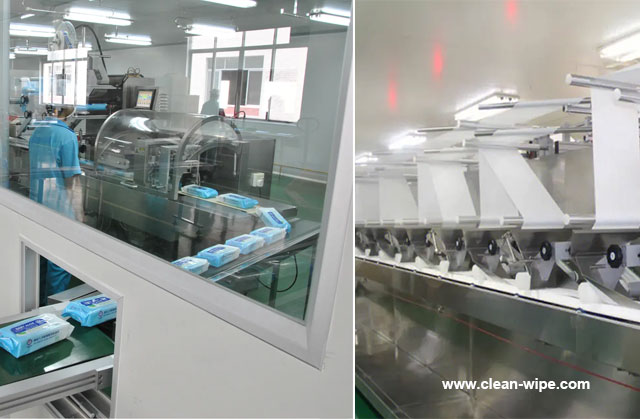
Wet Wipes Manufacturing Process
As a leading flushable biodegradable wipes manufacturer, Sywipe is committed to revolutionizing the industry. With over 12 production lines and a production capacity of 1,000,000 unit packs per month, Sywipe can meet the growing demand for sustainable wet wipes. Sywipe's products, made from natural fibers and certified biodegradable materials, cater to a wide range of uses, including baby care, personal hygiene, and household cleaning.
Sywipe's 45000 square meter facilities are equipped with the latest technology, ensuring that all products meet stringent environmental and safety standards.
The market for flushable biodegradable wipes is rapidly evolving, driven by consumer demand for convenience, hygiene, and sustainability. While challenges such as environmental pollution and microbial contamination remain, innovation is paving the way for more sustainable, effective solutions. Companies like Sywipe are leading the charge, offering biodegradable, flushable products that meet both consumer and environmental needs.
The future of the wipes industry lies in the continued development of biodegradable and plastic-free alternatives that provide consumers with the hygiene benefits they need without compromising the planet's health. As regulations tighten and consumer awareness grows, the shift toward more sustainable products will only accelerate.
Sywipe seizes every opportunity to use high-quality resources, including peer-reviewed research, to support the facts in our article. Learn more about our factory and how to keep the content accurate, reliable, and trustworthy.
• How to Choose the Best Wipes for Baby Skin?
• 21 Best Baby Wipes for Sensitive Skin in 2025
• How to Choose the Best Natural Baby Wipes for Sensitive Skin?
• Why Natural Baby Wipes are Essential for Newborn Skin Care?
Our Customers Always Come First
Trust is the Foundation of Our Service
sales@clean-wipe.com
sywipe@clean-wipe.com
Room 4611, No. 372 Huanshi East Road, Yuexiu District, Guangzhou,China.
+86-18927501869 / +86-20-81608597
/ +86-18927501869